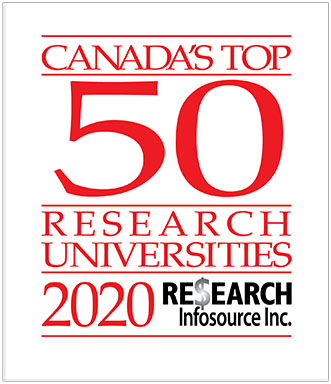The importance of collaboration in an era of COVID-19

This article was originally published in Canada’s Innovation Leaders 2020. Read the original version of the article (external link, opens in new window) .
The global fight against COVID-19 has illustrated the essential role that collaboration plays in tackling complex global challenges. We have seen researchers collaborate across diverse fields to address the direct and indirect effects of the crisis. Universities have combined expertise across borders and health-care providers are working side-by-side with commercial partners and academia, backed by the support of public institutions.
At Ryerson, our scholarly, research and creative (SRC) community has leveraged its strong partnerships and collaborations across these areas. The bonds we have forged with hospitals, industry, municipalities and other organizations have enabled members of our SRC enterprise to establish rapid responses to the most key issues.
Many of these challenges are immediate: diagnosing the disease, investigating drug treatments, monitoring the spread of the virus and innovating new personal protective equipment. But our researchers are also focused on the considerable ripple effects of the pandemic. This long-lasting and deep disruption is certain to have far-reaching implications for the everyday lives of Canadians and communities worldwide. To truly confront this pandemic, we must ensure that no one is left behind as we begin our recovery.
Refining virus detection methods is an important part of containing the spread of disease. Professor John G. Marshall is developing a highly accurate COVID-19 test that can detect even the smallest trace of the virus in a patient sample. The test uses professor Marshall’s ELiMSA technology, a platform that harnesses the power of the ultra-sensitive and commonly available mass spectrometer. The development of this technique, which can be applied to other diseases, is possible thanks to the combined efforts of his research team, YYZ Pharmatech Inc., National Taiwan University and St. Michael’s Hospital, a site of Unity Health Toronto.
In recognition of the key role of human connectedness in overall wellness, professors Sepali Guruge and Lori Schindel Martin are illuminating best practices in relational care within long-term care homes during pandemics. Their research team comprises experts from the Daphne Cockwell School of Nursing at Ryerson, the University Health Network and several Ontario universities and specialist organizations, including the Ontario Long-Term Care Association.
Members of Ryerson Urban Water, led by professors Claire Oswald and Kim Gilbride, are using molecular tools and wastewater analysis to track the COVID-19 virus in the sewage system in an effort to establish an early warning system of local outbreaks. In Toronto, they are working with partners, including Toronto Public Health, Public Health Ontario and Toronto Water. Supported by the Canadian Water Network, they are contributing surveillance data along with a number of other university laboratories from locations across Ontario and Canada.
To tackle misinformation surrounding the pandemic, professor Anatoliy Gruzd and Philip Mai of the Ryerson Social Media Lab are spearheading an international effort to document and study all COVID-19 related fact-checking activities in partnership with the World Health Organization.
As Ryerson looks to the innovations of the future, a collaboration with SOTI will boost the development of aerial drone technology for medical services. This could include the delivery of medical supplies, improving service to remote or rural areas and limiting person-to-person contact when required.
When emerging from the COVID-19 pandemic, collaboration will remain at the forefront of Canada’s recovery, our future prosperity and our well-being. During these times, Ryerson will continue its focus on both technologies and the social dimensions of the challenges that we face, ensuring that solutions reflect our orientation to equity, innovation and healthy communities throughout our country.
Related links:
